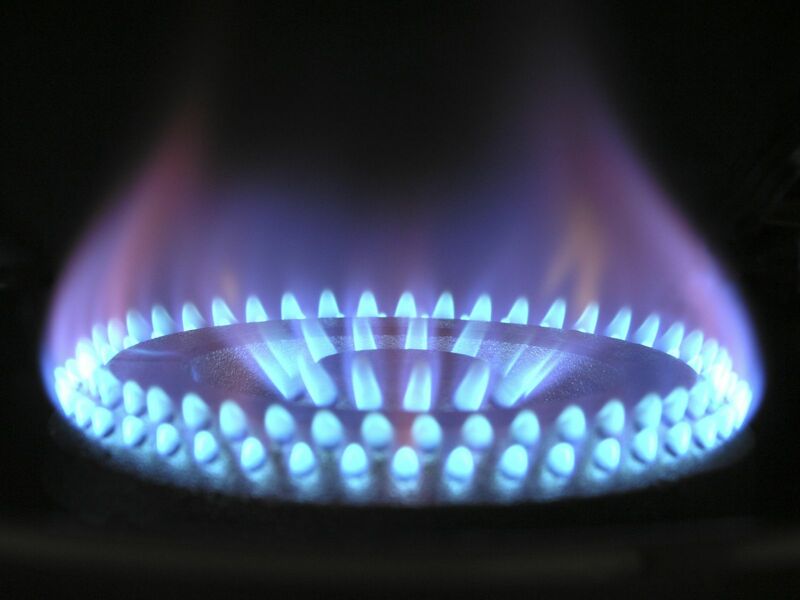
In a May 30 Barchart article on the U.S. natural gas futures market, I concluded:
Natural gas rallied at the start of the 2024 injection season, likely due to an increased level of speculative shorts. Even though U.S. stocks are at a historically high level, the potential for higher prices will depend on the U.S. and European demand during the upcoming cooling season. Weather conditions are the primary factor determining the path of least resistance of the energy commodity’s price. With open interest remaining elevated, a hot summer could keep the rally going as shorts close or reverse their risk positions.
Nearby NYMEX natural gas futures were at the $2.482 per MMBtu level on May 29 after reaching a $2.924 high. Natural gas ran out of upside steam before challenging the $3 per MMBtu level, but the correction led to a rally that eclipsed $3 in June. U.S. natural gas futures have been volatile, and the increased price variance will likely continue throughout the second half of 2024.
A correction leads to a higher high
On May 23, 2024, nearby August NYMEX natural gas futures reached $3.201 per MMBtu, a new high for 2023, as an overabundance of short positions likely pushed the price higher.

The chart highlights the 18.6% decline to $2.605 on May 31, which was a bottom and a higher low. The price moved to a marginally higher high of $3.221 per MMBtu on June 11, before declining below the $2.50 level in early July.
U.S. natural gas inventories remain high
Natural gas stockpiles across the United States remain at the highest level in years.

The chart shows that at 3.097 trillion cubic feet, natural gas inventories were 11.3% above last year’s level and 20.6% over the five-year average for June 21. Supplies are abundant to meet all summer cooling requirements and will be ample as the natural gas market heads for the peak 2024/2025 winter season in the coming months.
The peak cooling season leads to uncertainty over the upcoming 2024/2025 peak winter heating season
Summer began at the end of June, and temperatures across large areas of the United States are high, increasing power demand for cooling. Since natural gas remains the primary energy commodity in power generation, temperatures will dictate the demand over the coming months. A hot summer could cause natural gas stocks to moderate. As of June 28, Baker Hughes reported 97 natural gas rigs operating in North America, 27 below the previous year’s level. The high inventory level and relatively low prices have caused lower operating natural gas rigs.
Meanwhile, abundant stocks, relatively low prices, and lower output could mean natural gas inventories could begin to fall closer to the levels seen in previous years. The price tends to peak as the winter heating season approaches, so the inventory level will be critical in October and November.
Europe remains an issue as the war in Ukraine threatens Russian supplies for “unfriendly” consumers
In liquid form (LNG), U.S. natural gas now travels the world by ocean vessels to regions where prices are higher, and supplies are low. The ongoing war in Ukraine sent European natural gas futures prices to record highs in 2022. While they have declined, the trend since the February 2023 low has turned bullish.

The chart illustrates the bullish trend for U.K. natural gas futures, which have made higher lows and higher highs over the past four months.

Dutch natural gas futures display the same bullish price trend. Western Europe has depended on Russian natural gas pipeline supplies for power generation for many years. As the NATO countries continue to expand support for Ukraine, Russian supplies could be slowed or halted over the coming months, putting pressure on Western European supplies. Any shortages would likely increase U.S. LNG exports, putting downward pressure on U.S. inventories and upward pressure on worldwide natural gas futures prices.
Levels to watch in the volatile natural gas futures arena- UNG is the natural gas ETF product
August NYMEX natural gas prices remain in a bullish trend in the U.S.

As the nine-month chart shows, August natural gas futures rallied 45% from $2.207 on February 15 to $3.201 on May 23. After an 18.6% correction to $2.605 on May 31, prices rose 23.6% to a marginally new $3.221 high on June 11 before correcting again. In early July, critical technical support and resistance levels are at $2.207 and $3.221 per MMBtu.
The United States Natural Gas ETF product (UNG) is a liquid vehicle that tracks nearby NYMEX natural gas futures prices. At $16.75 per share, UNG had over $673.8 million in assets under management. UNG trades an average of over six million shares daily and charges a 1.11% management fee.

The chart shows UNG rose 55.8% from $13.87 at the April 26 low to $21.61 per share at the May 23 high. After correcting 19.5% to $17.39 on May 31, UNG rallied to $21.56 on June 11. While August natural gas futures made a marginally higher high, UNG fell slightly short of the May 23 peak.
UNG’s performance differs from the active natural gas futures prices because of the significant price differentials between futures delivery months. However, the ETF generally does an excellent job of tracking the price action on a short-term basis.
We could see lots of volatility in natural gas futures over the coming months. While inventories across the U.S. remain a bearish factor, the technical trend since the February low and the ongoing war in Europe are bullish factors. Natural gas is one of the most volatile commodities. Price variance should remain elevated in the current environment.
On the date of publication, Andrew Hecht did not have (either directly or indirectly) positions in any of the securities mentioned in this article. All information and data in this article is solely for informational purposes. For more information please view the Barchart Disclosure Policy here.






